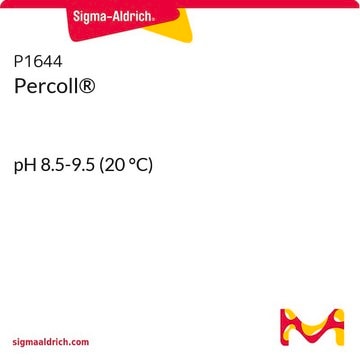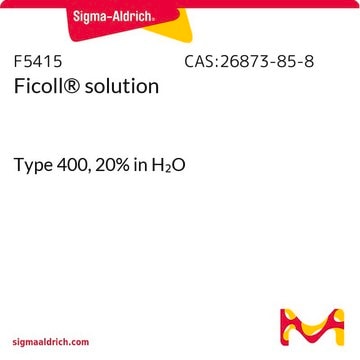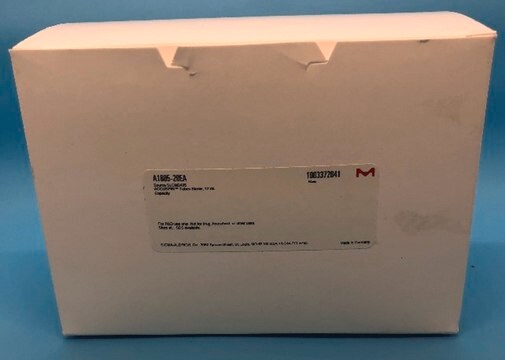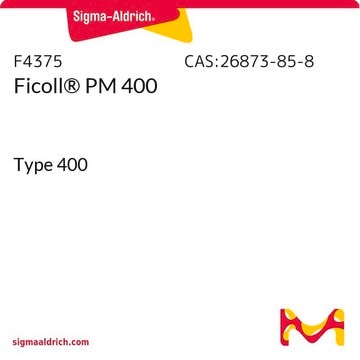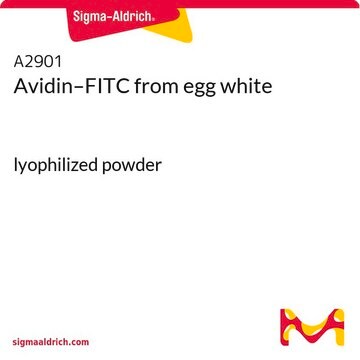11191
Histopaque®-1119
sterile-filtered, density: 1.119 g/mL
About This Item
Recommended Products
sterility
sterile-filtered
Quality Level
form
liquid
shelf life
Expiry date on the label.
impurities
endotoxin, tested
density
1.119 g/mL
application(s)
hematology
histology
storage temp.
2-8°C
General description
Application
Features and Benefits
- Optimal recovery of viable cells
- Permits selective separation of blood cell types
- Prevents cell distortion
- Preserves cell viability
- Minimal extraneous cell interference
- Reproducible performance from batch to batch
- Sterile-filtered and endotoxin-tested
- Stable at 2-8°C for at least 2 years when protected from light
Principle
Legal Information
related product
Signal Word
Warning
Hazard Statements
Precautionary Statements
Hazard Classifications
Eye Irrit. 2 - Met. Corr. 1 - Skin Irrit. 2
Storage Class Code
8A - Combustible corrosive hazardous materials
WGK
WGK 3
Flash Point(F)
Not applicable
Flash Point(C)
Not applicable
Certificates of Analysis (COA)
Search for Certificates of Analysis (COA) by entering the products Lot/Batch Number. Lot and Batch Numbers can be found on a product’s label following the words ‘Lot’ or ‘Batch’.
Already Own This Product?
Find documentation for the products that you have recently purchased in the Document Library.
Customers Also Viewed
Articles
Centrifugation enables the separation of particles by sedimentation. Learn how to separate particles using a centrifuge and how to use Stokes' law to calculate the velocity of sedimentation.
Centrifugation enables the separation of particles by sedimentation. Learn how to separate particles using a centrifuge and how to use Stokes' law to calculate the velocity of sedimentation.
Centrifugation enables the separation of particles by sedimentation. Learn how to separate particles using a centrifuge and how to use Stokes' law to calculate the velocity of sedimentation.
Centrifugation enables the separation of particles by sedimentation. Learn how to separate particles using a centrifuge and how to use Stokes' law to calculate the velocity of sedimentation.
Protocols
This troubleshooting guide addresses the most common sources of error observed when using Histopaque but is not meant to be a comprehensive list.
Ficoll 400® is a non-ionic polymer with high hydrophilicity and water solubility, suitable for various biological applications.
Ficoll 400® is a non-ionic polymer with high hydrophilicity and water solubility, suitable for various biological applications.
Ficoll 400® is a non-ionic polymer with high hydrophilicity and water solubility, suitable for various biological applications.
Our team of scientists has experience in all areas of research including Life Science, Material Science, Chemical Synthesis, Chromatography, Analytical and many others.
Contact Technical Service


